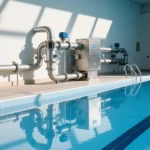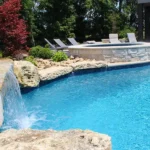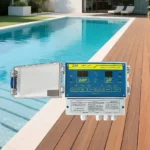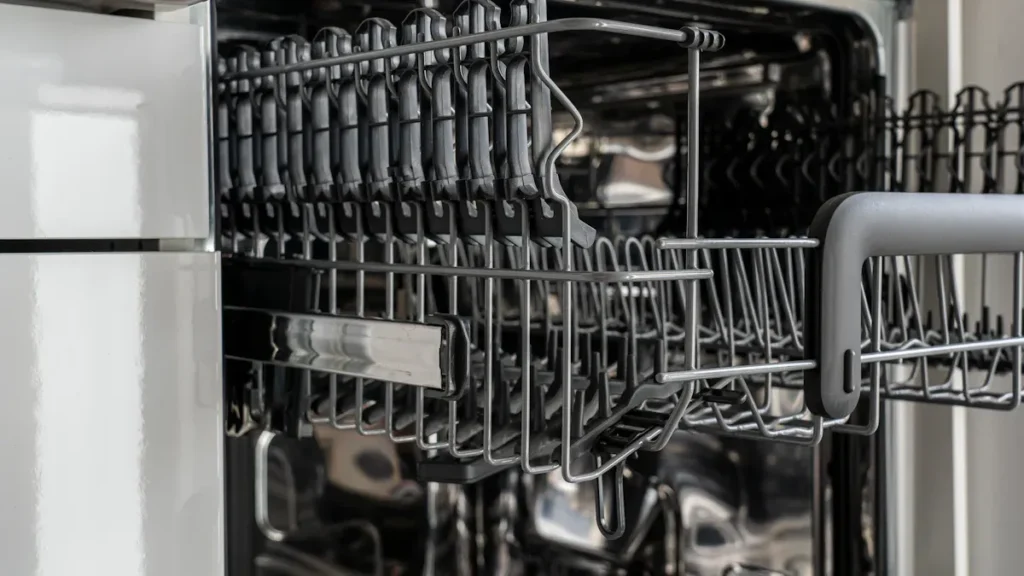The Evolution of Pool Sanitization
For decades, pool sanitization has primarily relied on manually adding chlorine tablets or liquid to the water. While effective, this method is labor-intensive, inconsistent, and often causes skin irritation or a strong chemical smell. Fortunately, salt chlorinators, also known as saltwater chlorination systems, have emerged as a game-changing, low-maintenance alternative for keeping swimming pools safe and crystal clear. These systems are rapidly becoming the preferred choice for homeowners, commercial pool operators, and resort managers due to their ease of use, long-term cost savings, and superior water quality.
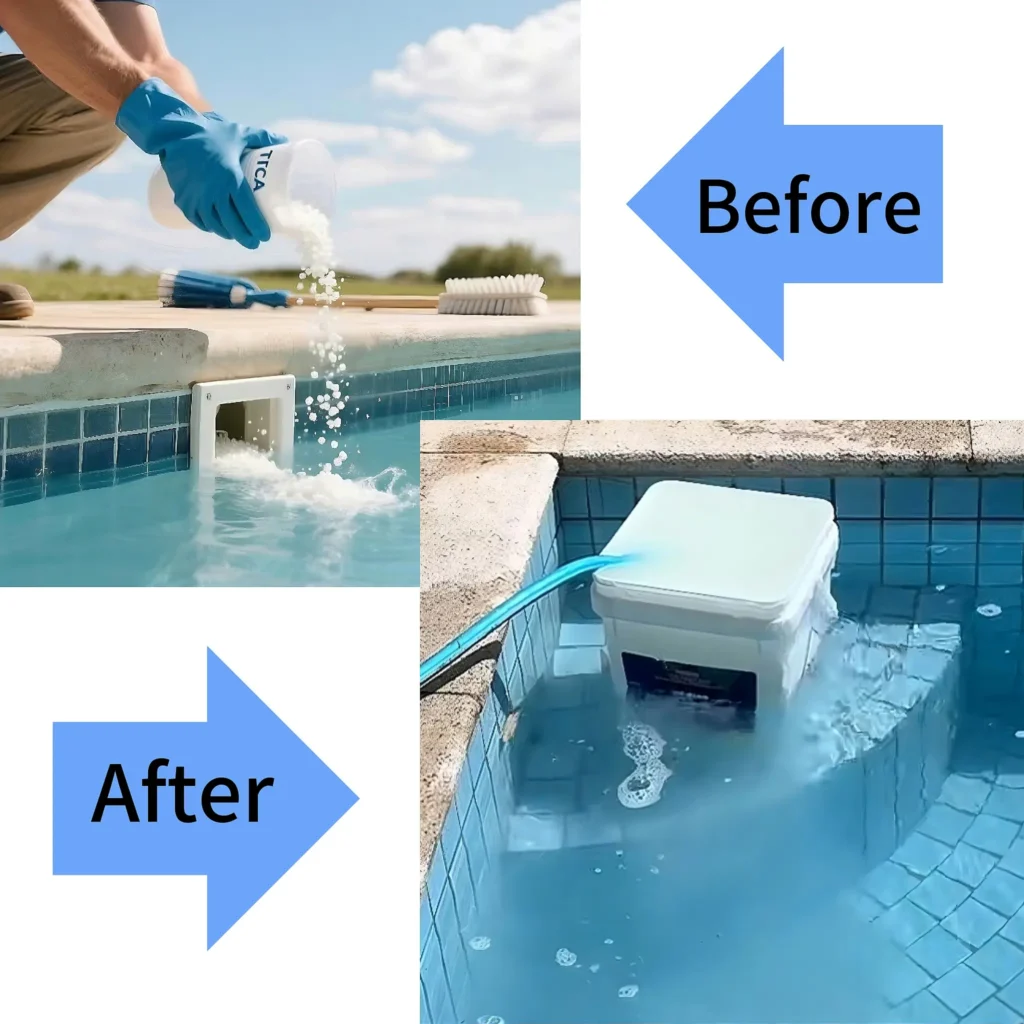
What Is a Salt Chlorinator?

A salt chlorinator is an automated disinfection system that uses dissolved salt in the pool water to generate chlorine through a process called electrolysis. It replaces the need to manually add chlorine chemicals while maintaining a consistent level of sanitization.
How it works:
- Salt (sodium chloride) is added directly into the pool.
- The saltwater passes through an electrolytic cell, typically housed in the filtration system.
- The cell uses a low electrical current to convert salt into hypochlorous acid, the active sanitizer also produced by traditional chlorine.
- This process repeats continuously, maintaining clean water without manual intervention.
When chlorine breaks down after neutralizing contaminants, it reverts to salt and is reused in the system, creating a self-sustaining loop.
Key Benefits of Saltwater Chlorination Systems
1. Low Maintenance and Automation
Salt chlorinators are largely automated, significantly reducing the amount of time and effort required to maintain pool water chemistry. Once set up, the system consistently produces chlorine as needed, eliminating the need to measure, add, or store chlorine manually.
2. Consistent Water Quality
Fluctuations in chlorine levels are a common issue with manual dosing. Saltwater chlorinators offer a more stable and reliable disinfection process, which helps maintain balanced pool water and improves overall clarity.
3. Gentler on Skin and Eyes
Traditional chlorinated pools often cause skin irritation, red eyes, and a strong chlorine odor. Saltwater pools, on the other hand, have smoother water due to the lower levels of free chlorine and the absence of chloramines, providing a more enjoyable swimming experience.
4. Cost-Effective Over Time
While the upfront cost of installing a salt chlorinator is higher than buying chlorine chemicals, the ongoing expenses are significantly lower. You’ll save on:
- Fewer chemical purchases
- Reduced equipment corrosion
- Less water replacement due to better chemical balance
Over the lifespan of the system, many pool owners report noticeable savings.
5. Environmentally Friendly
By reducing the need for chemical transportation, packaging, and manual handling, salt chlorinators represent a more eco-conscious choice for pool disinfection. This aligns with growing environmental awareness among property owners and hospitality businesses.
Types of Salt Chlorinators
There are several variations of salt chlorination systems to suit different pool sizes and use cases:
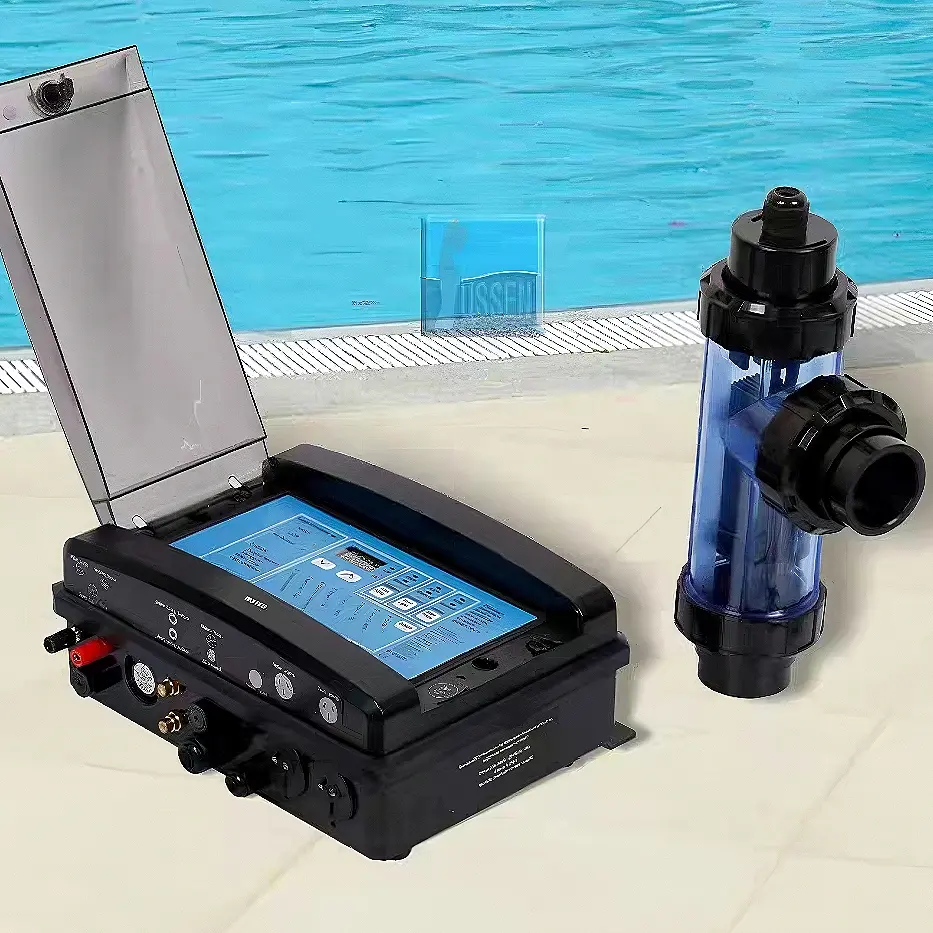
Residential Salt Chlorinators
Designed for home pools, these units are compact and easy to install. Some models offer smartphone integration for remote monitoring and control.
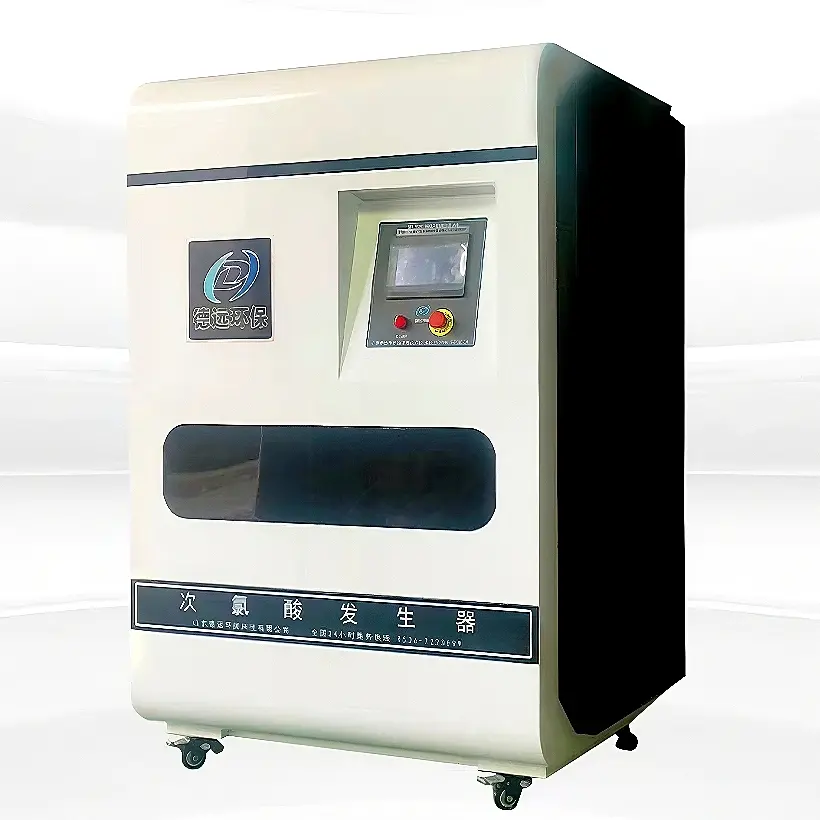
Commercial Saltwater Systems
These are built to handle higher usage and larger water volumes, perfect for hotels, public pools, and wellness centers.
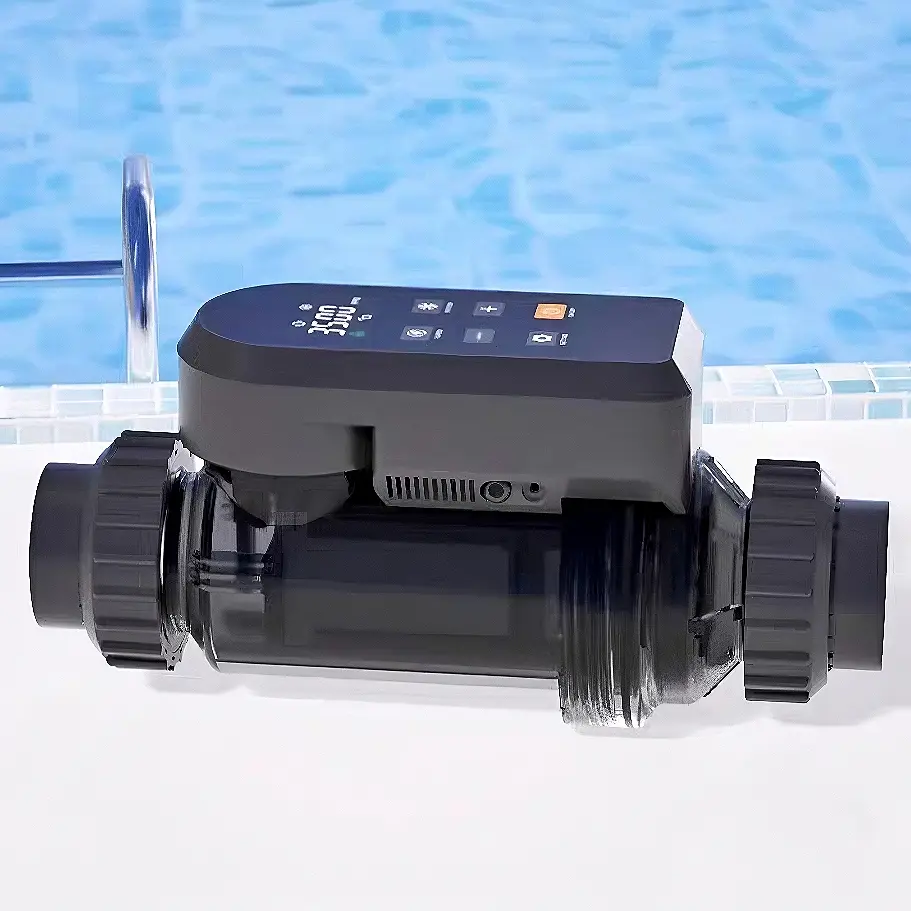
Self-Cleaning Salt Cells
These advanced models reverse polarity at intervals, minimizing calcium buildup inside the electrolytic cell and reducing the need for frequent cleaning.
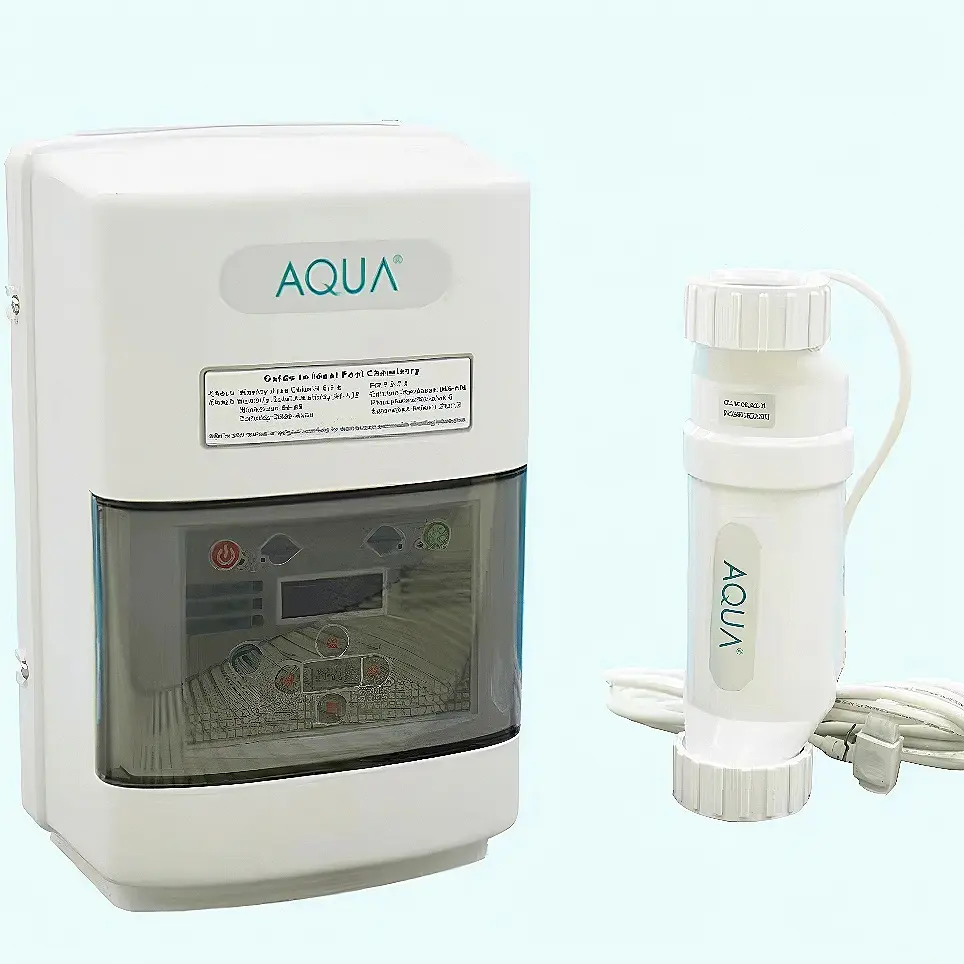
Inline vs Offline Chlorinators
Inline systems are directly connected to the pool’s plumbing system, while offline versions can be installed alongside the main circulation line, offering more flexibility in older pools.
Installation and Maintenance Tips

Installing a salt chlorinator involves adding pool-grade salt to the water, installing the electrolytic cell in the filtration line, and connecting the control panel.
Maintenance best practices:
- Check salt levels every few weeks (typically between 2500–3500 ppm)
- Inspect and clean the salt cell every 3–6 months
- Calibrate your system according to seasonal changes
- Monitor pH levels, as salt systems can slightly increase pH over time
While maintenance is far less demanding than traditional methods, occasional inspection ensures optimal performance and extends the lifespan of the unit.
Common Myths About Salt Chlorinators
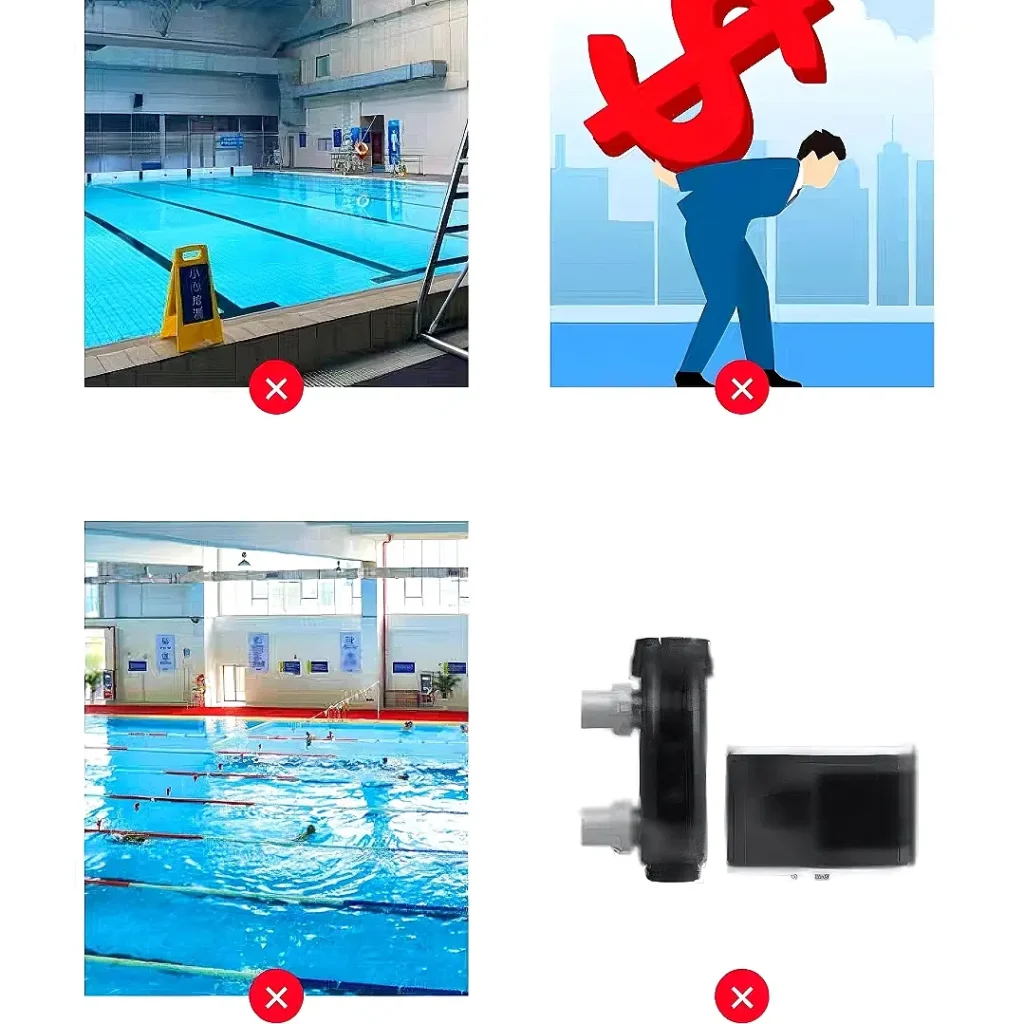
Myth 1: Saltwater pools are chlorine-free
False. They still use chlorine—it’s just generated automatically from salt, not manually added.
Myth 2: Salt damages pool equipment
Not if your equipment is designed for saltwater. Modern systems are made with corrosion-resistant materials.
Myth 3: Salt chlorinators are too expensive
The initial investment may be higher, but the long-term cost of ownership is often lower than buying chlorine regularly.
Are Salt Chlorinators Right for You?
Salt chlorinators are ideal for:
- Homeowners seeking convenience and comfort
- Commercial pool operators looking to streamline operations
- Eco-conscious property owners reducing chemical usage
- Anyone frustrated with the ongoing hassle of manual chlorination
If you’re building a new pool or considering an upgrade, investing in a saltwater chlorination system can lead to healthier water, lower maintenance, and happier swimmers.
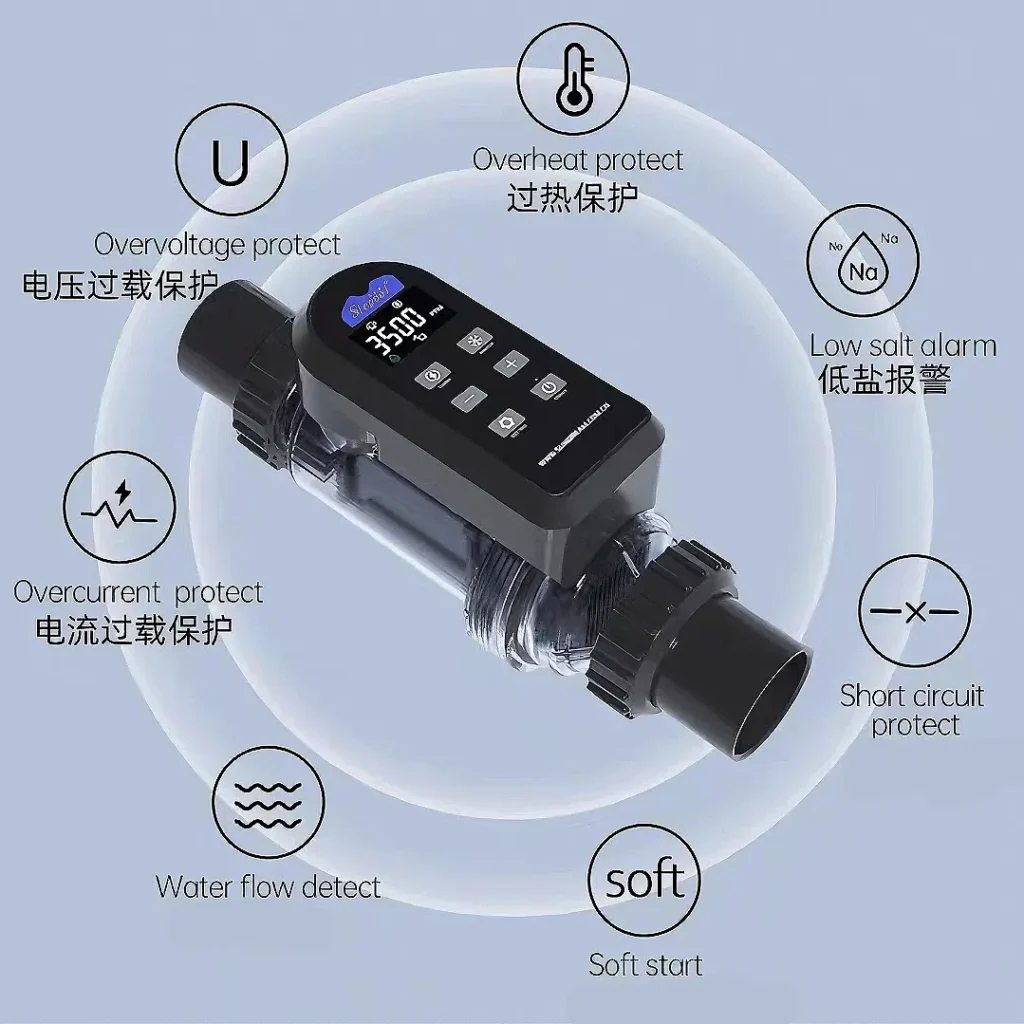
Conclusion: A Smarter Way to Sanitize Your Pool

Salt chlorinators offer a cleaner, safer, and more cost-effective solution for pool sanitization. With their ability to produce a steady flow of chlorine, minimize skin irritation, and reduce maintenance needs, these systems are revolutionizing how we keep our pools clean. Whether you’re a homeowner or a commercial facility manager, switching to a saltwater chlorinator can transform your pool maintenance routine—and enhance the overall swimming experience.


